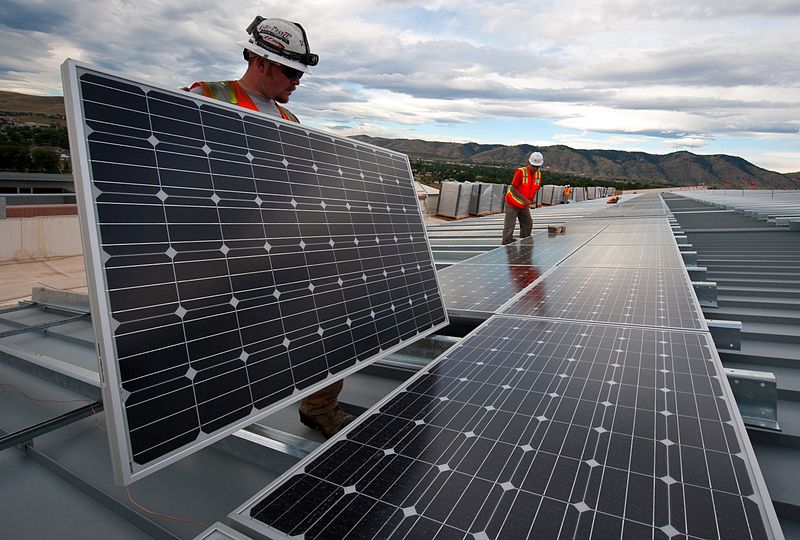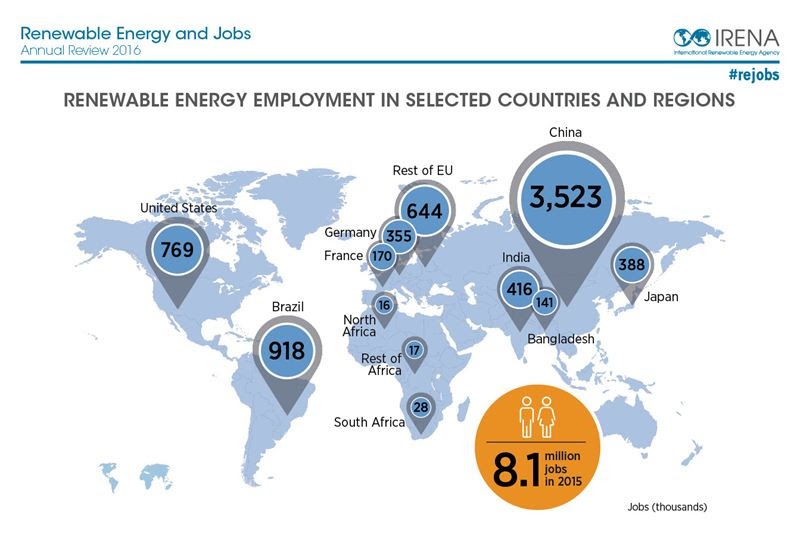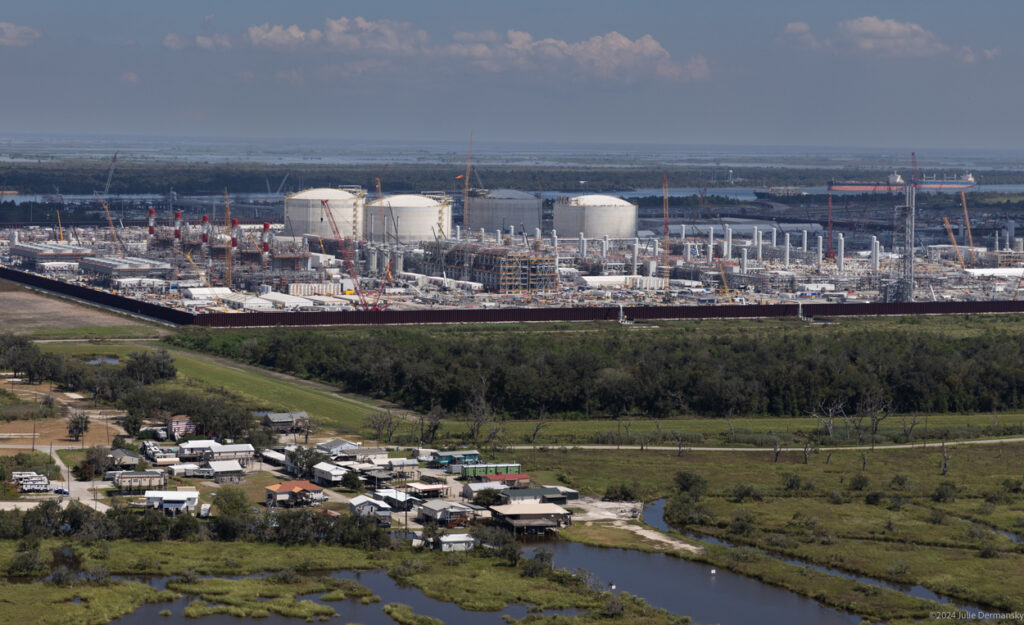More than 8.1 million people are now employed by the renewable energy industry worldwide, an increase of five percent over last year, according to the International Renewable Energy Agency (IRENA).
The number of renewable energy jobs worldwide went up in 2015 while jobs in the broader energy sector fell. In the United States, for example, renewable energy jobs increased six percent, but employment in oil and gas fell 18 percent.
That’s perhaps not surprising, as renewable energy continues to break records. According to the US Energy Information Administration (EIA), utility-scale electrical generation from renewable sources like solar and wind hit an all-time high of 16.89 percent of the country’s total electricity generation in the first quarter of 2016. During the same time period in 2015, renewable energy’s share of net generation was just 14 percent. Distributed solar photovoltaic and wind energy have also continue to grow quickly, the EIA found.
China has seen huge growth in its clean energy sector and now employs 3.5 million people, whereas oil and gas employ just 2.6 million. The countries with the most renewable energy jobs in 2015 were Brazil, China, Germany, India, Japan, and the US, according to IRENA.
The solar photovoltaic sector is the largest renewable energy employer worldwide with 2.8 million jobs. Meanwhile, growing wind installation rates in China, Germany and the US led to 1.1 million people being employed by the wind industry, a five percent global increase. Wind employment in the US alone rose by 21 percent, IRENA reported.
“The continued job growth in the renewable energy sector is significant because it stands in contrast to trends across the energy sector,” IRENA Director-General Adnan Z. Amin said in a statement. The increase in jobs, he added, was being driven by declining renewable energy technology costs as well as improvements to policy frameworks, such as national and state auctions in India and Brazil and tax credits in the US.
Amin said he expects these trends to continue gaining momentum as the business case for renewables becomes stronger and as countries move to achieve the emissions targets they agreed to in signing the Paris Climate Agreement.
“As the ongoing energy transition accelerates, growth in renewable energy employment will remain strong,” Amin said. “IRENA’s research estimates that doubling the share of renewable energy in the global energy mix by 2030 — enough to meet global climate and development targets — would result in more than 24 million jobs worldwide.”
Image Credit: ENERGY.GOV / Wikimedia Commons
Subscribe to our newsletter
Stay up to date with DeSmog news and alerts









